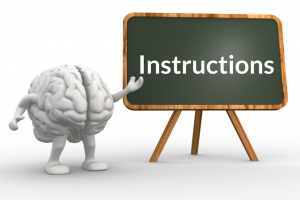Image: Claude Monet
Online Cambridge dictionary defines rapport [noun] /ræpˈɔːr/ as “a good understanding of someone and an ability to communicate well with them”. Rapport is an ongoing and constructive process happening in the classroom between teachers and their students. It requires teachers to be flexible and responsive to class dynamics. Rapport itself is an umbrella for various processes and actions, which are closely interconnected. Excellent rapport positively influences students’ attendance, attitudes, wellbeing and, consequently, their performance, progress and satisfaction. I have still been experimenting and adapting my approaches to building an excellent rapport with my students. Yes, it is all about trials and errors, successes, surprises and disappointments, all to learn from and improve. So far, this is what I find helpful and effective.
First impressions count
Don’t worry if you have already met your students, this article is still for you, as building rapport doesn’t stop here. Also, you may have new students infilled in your classes later on this year.
Remember that we only have approximately seven seconds to make a good first impression! Within that time students will make their initial opinions about us, that will influence whether they will like us or not. Of course, nothing is set in stone, but changing the first impression may be a long process. So when informing, explaining and supporting, be nice, authentic and use sensitive sense of humour.
My previous article on body language “Do you speak body language correctly?” may be a useful read here.
First steps to an excellent rapport
Start your lessons with a smile, possibly with some music in the background while you are doing warmers waiting for all students to arrive. Choose music that your students like and are familiar with, possibly from their country?
Some scholars recommend shaking hands with all our students at the door when they arrive, but I understand some of us may not have time to do that. Instead, greet each student using their names as they arrive, use first names regularly. Learning-related and appropriate compliments always help.
Remember, we are role models. Every day. This obliges us to a professional look and behaviour, such as coming on time or not using your personal mobile in class. Have high expectations, but perform to the highest standards as well. Prepare your lessons, don’t improvise, as, as Benjamin Franklin said, “By failing to prepare you are preparing to fail”.
Whatever subject we teach, we also prepare our students for acting professionally outside the classroom. Students really appreciate teacher’s approach and feel respected that way – this is a very important element of building strong relationships.
Set rules and routines
Set boundaries from the start of the course, no matter if the course is short or long. Set the rules together with the students (to encourage accountability and taking ownership), play by them and expect the same in return. Be consistent, this builds strong foundations. Make sure the rules are clear and known by all students. When necessary, use every opportunity to revisit or refer to the agreements. Encourage routines and address inappropriate behaviour (also lateness) immediately.
Plan and structure your lessons. Review and regularly assess previous learning. Start with clear aims and objectives. Give clear instructions all the way through the lesson and check understanding if a student looks confused. Have interesting, creative and relevant content to get students’ attention. Ask open, directed and differentiated questions. Make sure you summarise your lesson at the end and students leave knowing exactly what they achieved and what they need to do next.
It’s all about your students
We are teachers but students are the core of each lesson. Let the students take ownership, be responsible for their learning (as much as possible) and shine. Yes, you ARE the teacher BUT THEY need to learn new things. As Jackie Beere advises, “don’t be the sage on the stage, be the guide on the side”. Do encourage independence in stages. Some learners, who in the past experienced teacher-centred approach to teaching and learning, may perceive it as the only way good for them. These learners may not be happy when you introduce independent learning principles, so be patient and explain why you request certain actions. From my personal experience, I learned that after some time students start to understand the process and are grateful for the opportunities given. Their independence will only grow from this point.
Know your students and their expectations as well as problems they have. Monitor, ask (verbally and in writing) and assess continuously. Knowing students well will inform your lesson planning, material selection as well as your individual approach towards the learners. Ask about students’ learning preferences, personal issues (if disclosed) and try to differentiate accordingly (of course as much as you can). If needed, ask colleagues, internal or external agencies for help. I am sure that your students will appreciate your flexibility.
Observe students in class and adjust when you see they don’t feel comfortable. Offer more time for responses and encourage students to provide more information on a given topic. This forms the strong basis to building long-term confidence.
Embed Equality & Diversity themes using naturally occurring opportunities. Use images or examples linking to students’ backgrounds. When giving scenarios, give roles to your students. Mention students’ names in handouts. Celebrate festivals (mind food-related Health & Safety) and observe important days. Use relevant greetings to show you know about events your students find important. Let your learners present information about themselves and their background. This makes them really proud.
Show you care
A student stopped writing as their pen broke? Another one is not feeling well? Monitor what happens in your classroom and react accordingly. Help students but don’t deprive them from a chance to use their skills. Pass a tissue when you see that searching for a tissue would limit student’s time they need to spend on a task, but don’t offer answers or solutions to tasks. Ask students to work things out themselves.
Are your students preparing for or re-sitting their exams? Keep them up-to-date. Arrange additional practice, whether with you or someone else. Keep encouraging and supporting your learners emotionally. Say you believe in them and show how to apply growth mindset principles.
Listen actively and show attention. Ask additional questions, say things back in order to clarify details and don’t make assumptions.
Every time you agree or promise something for a student (whether it is checking information or providing them with extra practice materials) just DO IT! Write it down or set a reminder but keep your word.
Be the one they trust. Let your learners know when you are available and that they can approach you if they need to talk to someone. Be open and dedicate time to initial conversations but refer the student further when you are unable to help.
Teachers matter too!
Teachers also benefit from building a good rapport with students. Positive atmosphere, trust, appreciation and less stress are only some of the positive outcomes.
Take care of yourself too! Remember about work-life balance. You are a professional so remember to keep your private life outside the classroom. Don’t disclose any personal details or befriend your students on social media platforms. Keep reminding your students that “teachers are human beings too” (yes, we forget things too), as learners may be too demanding from time to time. Express your feelings when necessary, explain your role carefully and provide students with realistic plans and solutions. The last but not least, admit mistakes. This way you build your credibility.
Constructive feedback and confidence building
Ongoing assessment and feedback are very important to monitor and encourage students’ progress. Be equal but diverse. Praise behaviour, effort and ideas, NOT the students themselves. This way you allow things to change in the future. Give equal attention to all learners in class and be fair. Have your own individual approach to every student and try to differentiate tasks according to students’ needs (I know it is not always possible, just try). If assessment criteria are used for a task, follow them when giving feedback. Link assessment criteria to student’s performance or written work in a clear way.
I found that giving positive feedback and praising meaningfully in front of the class helps a lot, do not overuse it though, but remember about it when you want to boost someone’s confidence.
Constructive feedback may be followed by encouragement (eg. motivational talks) and offering relevant support. Offer it in form of additional practice (paper-based or online) or play to other students’ strengths and suggest a stronger student supports a weaker one. This way both students will feel they are getting attention: one is getting help and the other one has been recognised and is doing something good for others. Students usually feel proud and important then.
Focus on solutions, not problems and reflect it by using relevant and appropriate language, also when describing emotions (eg. “What helps us …”, “I like when you …”, “She feels … when you …” or “Why don’t you try …?”). Similarly to that, when speaking to your learners, give opportunities rather than restrict their actions (“Don’t be late” vs “Come on time”).
Communication
Encourage effective communication and positive relations between students in your class. For lower levels, have a display presenting useful images and phrases. Talk and encourage learners to talk about emotions openly. Not every culture does it, so some students may need time to understand and apply it.
Ask for opinions and feedback on a regular basis, check if students get involved. This way you inform your planning and make learning relevant and more effective.
Mind sensitive topics, offer confidentiality (in relation to that, follow all procedures) and suggest some conversations should happen after the lesson. Be discreet. Monitor reactions to certain topics (eg. Family may be a sensitive topic for war refugees) and be careful when telling jokes or leading discussions on sensitive matters. Again, setting rules may be helpful here to show you are in control.
Building rapport continues beyond classroom
Yes, it does! Show attention by simply saying “Hi …, how are you today?” when you meet your students in the corridor or a local shop. Smile.
Start some mailing or discussion groups online (use college platforms or closed groups for the online safety reasons). Consider Padlet (https://en-gb.padlet.com/) as a sharing space students can contribute to in their free time. Contact your students with important reminders.
When emailing, be unique towards a particular group, greet the group in a way that highlights their qualities, eg. “Hello hard-working people”. I got really positive feedback from my evening students previously, who indeed, worked hard – having full-time jobs, taking care of their families and attending evening classes! Show your students you know and remember they have lives outside the college too. I am sure this makes them feel appreciated.
Once you’ve finished reading this article, just reflect on these three quotations in relation to your practice:
“The quieter you become, the more you can hear.” Ram Dass
“I’ve learned that people will forget what you said, people will forget what you did, but people will never forget how you made them feel.” Maya Angelou
“Treat people the way you want to be treated. Talk to people the way you want to be talked to. Respect is earned, not given.” Hussein Nishah






Add Comment